- 0086-571-85302990
- sales@greenskybio.com
Versatile and Delicious: Exploring Konjac Powder Recipes
2024-07-04

Introduction to Konjac Powder
Konjac Powder, also known as glucomannan, is a natural dietary fiber derived from the konjac plant. It has been used in Asian cuisine for centuries and is now gaining popularity worldwide due to its numerous health benefits and culinary versatility.
One of the main attractions of Konjac Powder is its low - calorie and high - fiber content. It can absorb a large amount of water, which gives it a unique texture and makes it a great substitute for higher - calorie ingredients in various recipes.
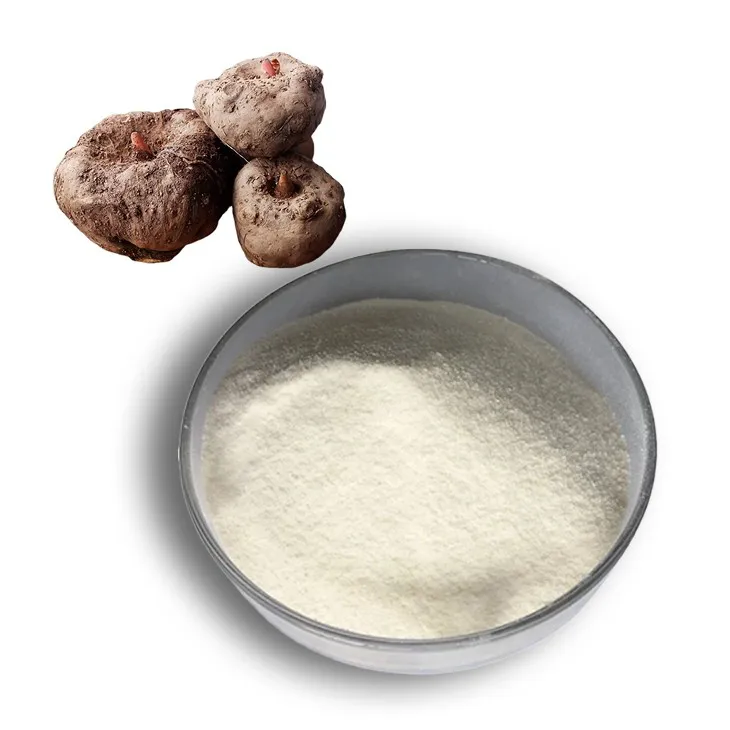
Konjac Powder in Main Courses
Konjac Noodles in Stir - Fry
Ingredients:
- Konjac noodles (prepared according to package instructions)
- Assorted vegetables (such as bell peppers, broccoli, carrots)
- Protein source (chicken, beef, or tofu)
- Soy sauce
- Garlic
- Ginger
- Olive oil
- Seasonings (salt, pepper, etc.)
Steps:
- Heat the olive oil in a wok or large skillet. Add minced garlic and ginger and stir - fry until fragrant.
- Add the protein source and cook until it is almost done. For example, if using chicken, cook until it is no longer pink on the outside.
- Add the assorted vegetables and continue to stir - fry until they are slightly tender.
- Add the prepared konjac noodles and stir - fry for a few minutes to combine all the ingredients.
- Drizzle with soy sauce and season with salt and pepper according to taste.
Konjac Rice and Vegetable Casserole
Ingredients:
- Konjac rice
- Assorted vegetables (onions, mushrooms, zucchini)
- Cheese (optional)
- Eggs
- Milk
- Butter
- Seasonings (such as thyme, paprika)
Steps:
- Preheat the oven to 350°F (175°C).
- In a pan, melt the butter and sauté the onions until translucent. Add the mushrooms and zucchini and cook for a few more minutes.
- In a separate bowl, mix the konjac rice with the cooked vegetables.
- If using cheese, add a layer of cheese at the bottom of a casserole dish. Then pour in the konjac rice - vegetable mixture.
- In a small bowl, whisk together the eggs and milk. Pour this mixture over the contents in the casserole dish.
- Sprinkle with seasonings and if desired, add another layer of cheese on top.
- Bake in the preheated oven for about 30 - 40 minutes or until the top is golden brown.
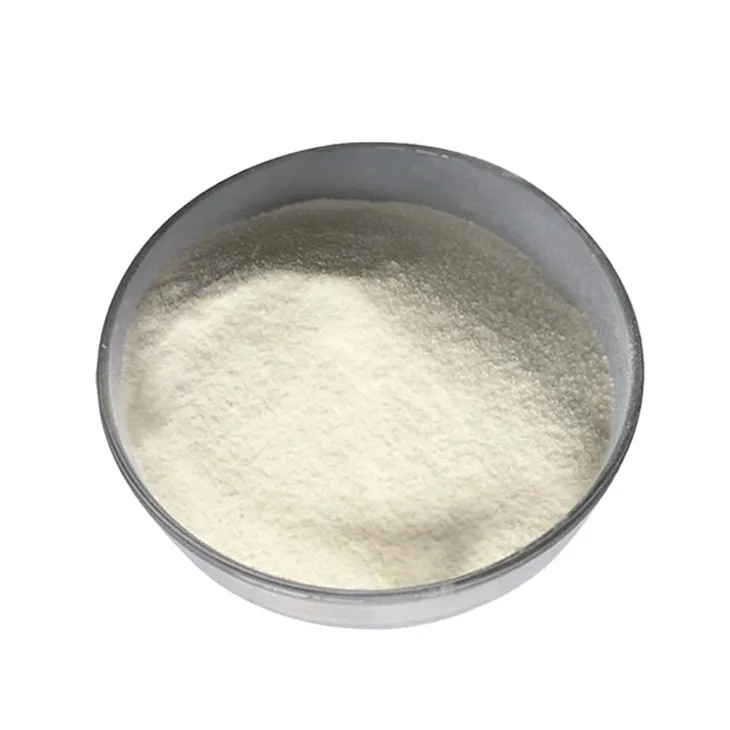
Konjac Powder in Desserts
Konjac Jelly with Fruit
Ingredients:
- Konjac powder
- Fruit juice (such as orange juice, strawberry juice)
- Fresh fruits (for topping)
- Sugar or sweetener (optional)
Steps:
- In a saucepan, bring the fruit juice to a boil. Slowly add the konjac powder while whisking constantly to prevent lumps from forming.
- If using sugar or sweetener, add it to the mixture and stir until dissolved.
- Pour the mixture into molds or small bowls and let it cool. Refrigerate for a few hours until it sets into a jelly - like consistency.
- Before serving, top with fresh fruits for an extra burst of flavor and a beautiful presentation.
Konjac Mousse
Ingredients:
- Konjac powder
- Heavy cream
- Sugar
- Vanilla extract
- Gelatin (optional, for a firmer texture)
Steps:
- In a small saucepan, heat a small amount of water. Add the konjac powder and stir until it forms a thick paste. Set aside.
- In a separate bowl, whip the heavy cream with sugar and vanilla extract until it forms stiff peaks.
- If using gelatin, follow the package instructions to dissolve it and add it to the konjac paste.
- Gently fold the konjac paste (with or without gelatin) into the whipped cream until well combined.
- Pour the mixture into individual serving dishes and refrigerate for at least 2 hours until set.
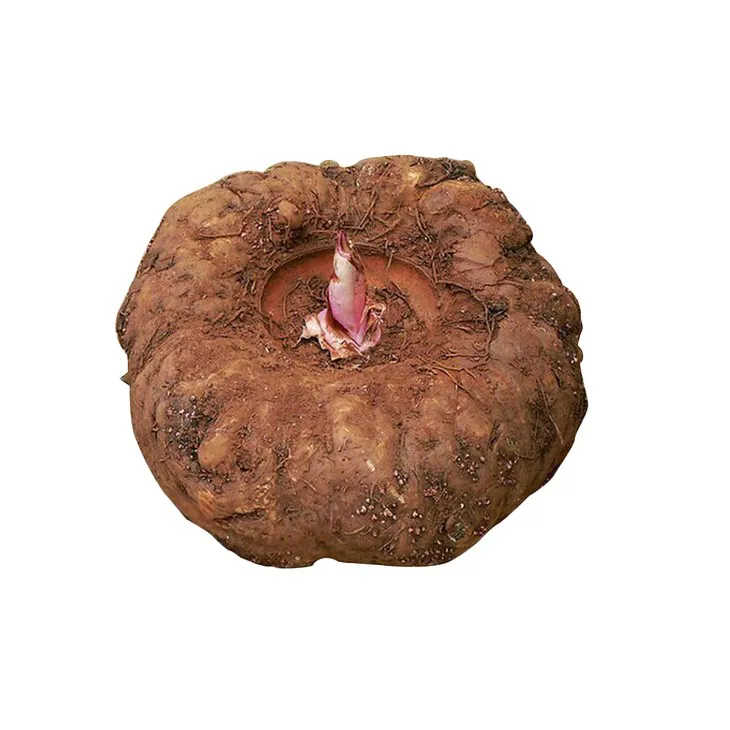
Health Benefits of Konjac Powder
Konjac powder offers several health benefits in addition to its culinary uses.
Firstly, its high - fiber content aids in digestion. It can help prevent constipation by adding bulk to the stool and promoting regular bowel movements.
Secondly, konjac powder may be beneficial for weight management. Due to its ability to absorb water and create a feeling of fullness, it can reduce appetite and calorie intake.
Furthermore, some studies suggest that konjac powder may have a positive impact on blood sugar levels. It can slow down the absorption of carbohydrates, which may be helpful for people with diabetes or those at risk of developing diabetes.
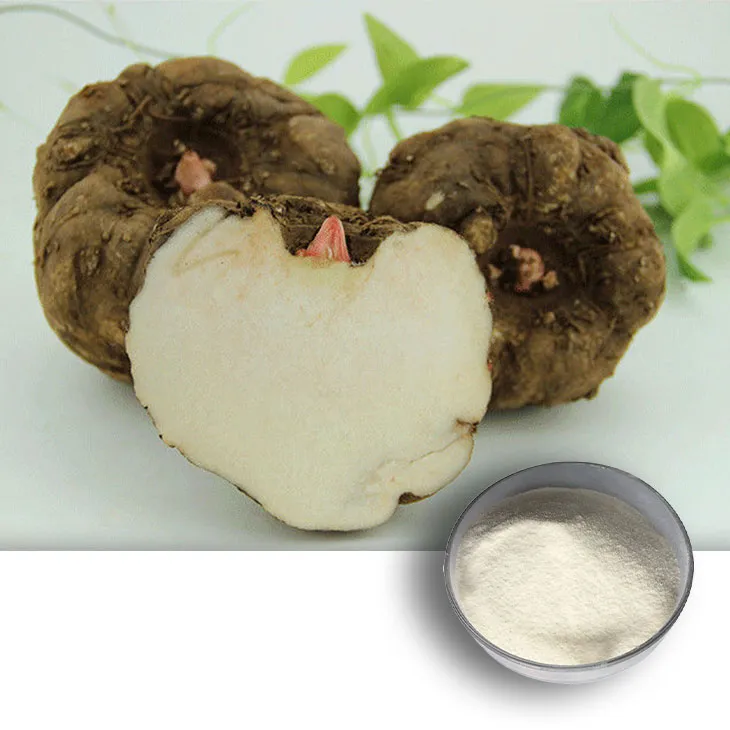
Tips for Working with Konjac Powder
When using konjac powder, there are a few tips to keep in mind to ensure the best results.
Always measure the konjac powder accurately. Using too much or too little can affect the texture and consistency of the final dish.
When mixing konjac powder with liquids, stir constantly to avoid lumps. This is especially important when making konjac jelly or other smooth - textured dishes.
If you are new to using konjac powder, start with simple recipes and gradually experiment with more complex ones as you become more familiar with its properties.
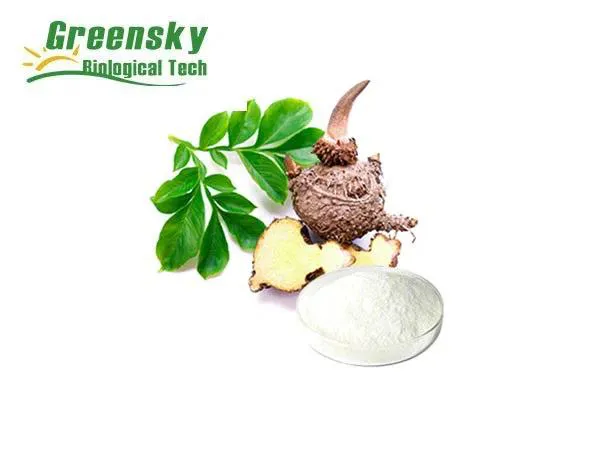
Conclusion
Konjac powder is truly a versatile and delicious ingredient that can be used in a wide variety of recipes. Whether you are looking to create a healthy main course or a decadent dessert, konjac powder has the potential to add a unique touch to your culinary creations. With its numerous health benefits, it is also a great addition to a balanced diet. So, don't be afraid to explore the world of konjac powder recipes and discover the wonderful dishes you can make.
FAQ:
What are some main course recipes using konjac powder?
One popular main course recipe is konjac noodle stir - fry. First, soak the konjac noodles in water to soften them. Then, sauté some vegetables like bell peppers, onions, and mushrooms in a pan. Add the drained konjac noodles and season with soy sauce, garlic, and a bit of chili for some heat. Another option is to make a konjac - based meatball" dish. Mix konjac powder with some plant - based proteins, spices, and binders like flaxseed meal. Shape into balls and bake or pan - fry them. Serve with a sauce made from tomatoes, herbs, and spices.
Can konjac powder be used in baking?
Yes, it can. For example, you can make konjac - based muffins. Replace a part of the flour in the muffin recipe with konjac powder. It adds a unique texture and can also help in reducing the overall carbohydrate content. You need to be careful with the amount you use as too much konjac powder can make the batter very thick. Another baking idea is konjac - enhanced brownies. Combine konjac powder with cocoa powder, a sweetener, eggs (or a vegan substitute), and some oil. Bake as you would a normal brownie, and you'll get a fudgier texture.
What are some easy konjac powder dessert recipes?
A simple konjac powder dessert is konjac jelly. Boil water and add konjac powder along with a sweetener like stevia or honey (if not vegan). Stir well until it thickens, then pour it into molds and let it set in the refrigerator. You can also add fruit juices or pieces of fresh fruit to the jelly for added flavor. Another dessert option is konjac - based ice cream. Blend konjac powder with a non - dairy milk, some frozen fruits, and a touch of vanilla extract. Freeze the mixture while stirring occasionally to get a smooth and creamy ice - cream - like texture.
How do you store konjac powder?
Konjac powder should be stored in a cool, dry place, away from direct sunlight. It is best to keep it in an airtight container. This helps to prevent moisture from getting in, which could cause the powder to clump or spoil. If stored properly, konjac powder can last for a long time, usually up to a year or more.
Is konjac powder suitable for people with dietary restrictions?
Konjac powder is often suitable for people with certain dietary restrictions. It is low in calories and carbohydrates, which makes it appealing to those on a low - carb or calorie - restricted diet. It is also gluten - free, so it can be used by people with gluten intolerance or celiac disease. However, some people may have an intolerance or sensitivity to konjac itself, so it's important to introduce it gradually into your diet and monitor for any adverse reactions.
Related literature
- "The Versatility of Konjac in Modern Cuisine"
- "Konjac Powder: A Hidden Ingredient in Gourmet Recipes"
- "Discovering New Konjac - Based Recipes for Health and Taste"
- ▶ Hesperidin
- ▶ Citrus Bioflavonoids
- ▶ Plant Extract
- ▶ lycopene
- ▶ Diosmin
- ▶ Grape seed extract
- ▶ Sea buckthorn Juice Powder
- ▶ Fruit Juice Powder
- ▶ Hops Extract
- ▶ Artichoke Extract
- ▶ Mushroom extract
- ▶ Astaxanthin
- ▶ Green Tea Extract
- ▶ Curcumin
- ▶ Horse Chestnut Extract
- ▶ Other Product
- ▶ Boswellia Serrata Extract
- ▶ Resveratrol
- ▶ Marigold Extract
- ▶ Grape Leaf Extract
- ▶ New Product
- ▶ Aminolevulinic acid
- ▶ Cranberry Extract
- ▶ Red Yeast Rice
- ▶ Red Wine Extract
-
Hawthorn powder
2024-07-04
-
Red Vine Extract
2024-07-04
-
Curcumin
2024-07-04
-
Chaste Berry Extract
2024-07-04
-
Acai Berry Extract
2024-07-04
-
Almond Extract Powder
2024-07-04
-
Curcuma Longa Extract
2024-07-04
-
Cassia Seed Extract
2024-07-04
-
Bilberry Extract
2024-07-04
-
Citrus bioflavonoids
2024-07-04





















